There are over 50,000 Germans living in Turkey , primarily Germans married to Turkish spouses, employees, retirees and long-term tourists who buy properties across the Turkish coastline, often spending most of the year in the country. [1]
Caucasus Germans inhabited the northeast of the country since 18th century. Especially in the city of Kars.
The officials and the artisans sent to Istanbul during the close relations with the Ottoman Empire at the time of Kaiser Wilhelm II formed the so-called Bosporus Germans. The Germans in this group returned home after the First World War.
In 1933, the rise to power of the Nazis caused the second wave of immigration from Germany to Turkey. It has been reported that the number of these “exiled Germans”, concentrated in Istanbul and Ankara, reached 800 (190 of whom were academics [2] who took up positions at Turkish universities). See, for example, Curt Kosswig for an example of a German emigrant academic. He stayed in Turkey from 1937 to 1955.
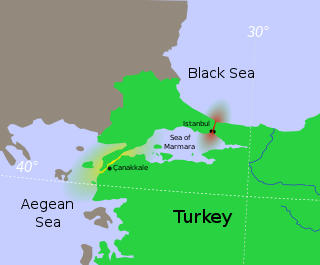
The Bosporus or Bosphorus Strait is a natural strait and an internationally significant waterway located in Istanbul, Turkey. The Bosporus connects the Black Sea to the Sea of Marmara and forms one of the continental boundaries between Asia and Europe. It also divides Turkey by separating Anatolia from Thrace. It is the world's narrowest strait used for international navigation.

The (Montreux) Convention regarding the Regime of the Straits, often known simply as the Montreux Convention, is an international agreement governing the Bosporus and Dardanelles straits in Turkey. Signed on 20 July 1936 at the Montreux Palace in Switzerland, it went into effect on 9 November 1936, addressing the long running Straits Question over who should control the strategically vital link between the Black and Mediterranean seas.
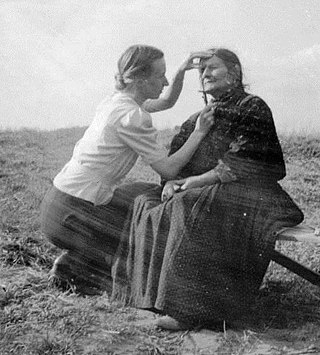
The racial policy of Nazi Germany was a set of policies and laws implemented in Nazi Germany under the dictatorship of Adolf Hitler, based on pseudoscientific and racist doctrines asserting the superiority of the putative "Aryan race", which claimed scientific legitimacy. This was combined with a eugenics program that aimed for "racial hygiene" by compulsory sterilization and extermination of those who they saw as Untermenschen ("sub-humans"), which culminated in the Holocaust.

Istanbul University, also known as University of Istanbul, is a public research university located in Istanbul, Turkey.
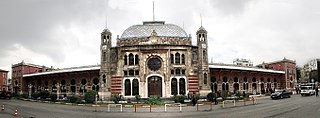
Sirkeci railway station, listed on maps as Istanbul railway station, is a railway terminal in Istanbul, Turkey. The terminal is located in Sirkeci, on the tip of Istanbul's historic peninsula, right next to the Golden Horn and just northwest of Gülhane Park and the Topkapı Palace. Sirkeci Terminal on the European side of the Bosporus strait, along with Haydarpaşa Terminal on the Asian side, are Istanbul's two intercity and commuter railway terminals. Built in 1890 by the Oriental Railway as the eastern terminus of the world-famous Orient Express that once operated between Paris and Istanbul in the period between 1883 and 2009, Sirkeci Terminal has become a symbol of the city. As of 19 March 2013, service to the station was indefinitely suspended due to the rehabilitation of the existing line between Kazlıçeşme and Halkalı for the new Marmaray commuter rail line. On 29 October 2013, a new underground station was opened to the public and is serviced by Marmaray trains travelling across the Bosphorus. Station reopened on 26 February 2024 as part of T6 Sirkeci–Kazlıçeşme Tramway Line / U3 Sirkeci–Kazlıçeşme Rail Line. Sirkeci Terminal has a total of 4 platforms with 7 tracks. Formerly, commuter trains to Halkalı would depart from tracks 2, 3 and 4; while regional trains to Kapıkule, Edirne and Uzunköprü, along with international trains to Bucharest, Sofia and Belgrade would depart from tracks 1 and 5.

The history of the Jews in Turkey covers the 2400 years that Jews have lived in what is now Turkey.
Bosporus Germans is the nickname given to ethnic Germans who were living in Istanbul from the second half of the 19th century.

Istanbul is the largest city in Turkey, straddling the Bosporus Strait, the boundary between Europe and Asia. It is considered the country's economic, cultural and historic capital. The city has a population of over 15 million residents, comprising 19% of the population of Turkey, and is the most populous city in Europe and the world's fifteenth-largest city.
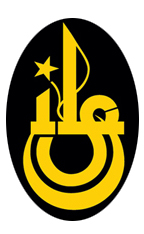
Istanbul High School, also commonly known as Istanbul Boys' High School, is one of the oldest and internationally renowned high schools of Turkey. The school is considered elite among Turkish public high schools. Germany recognizes the school as a Deutsche Auslandsschule.

The MV Savarona is the presidential yacht of the Republic of Turkey. She was the largest in the world when launched February 28, 1931, and remains, with a length of 136 m (446 ft), one of the world’s longest. Although owned by the Government of Turkey, she had been leased out to Turkish businessman Kahraman Sadıkoğlu. However, upon orders of the Turkish Government her lease was terminated and she reverted to the Turkish State. The first time she was used again for an official reception was in March 2015.
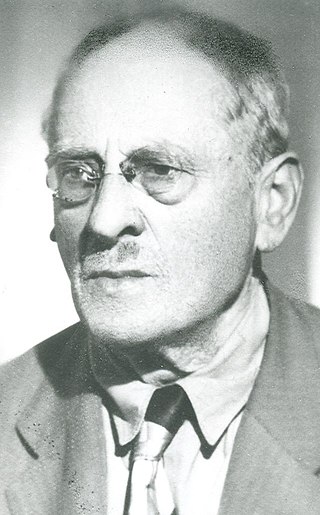
Oskar Rescher, also known as Osman Reşer, was a prolific German-Turkish scholar in Arabic, Persian, and Turkish literature who specialized in pre-Islamic Arabic poetry and Ottoman studies.

Hans Gustav Güterbock was a German-American Hittitologist. Born and trained in Germany, his career was ended with the rise of the Nazis because of his Jewish heritage, and he was forced to resettle in Turkey. After the Second World War, he immigrated to the United States and spent the rest of his career at the University of Chicago.

Rumeli Feneri, also Türkeli Feneri, a historical lighthouse still in use, is located on the European side of the Bosporus Strait's Black Sea entrance in Istanbul.

Ernst Jäckh was a German journalist, diplomat, author, and academic who later lived in Great Britain and the United States. He is most known for having advocated for first Germany, and then the United States, having better relations with Turkey. He was the founder and leader of the Deutsche Hochschule für Politik in Berlin from 1920 to 1933.
Curt Kosswig was a German zoologist and geneticist, who spent most of his career at the University of Istanbul (1937–1955) and Hamburg University (1955–1969). Curt Kosswig is known as the Father of Turkish Zoology.
Hellmut Ritter was a leading German Orientalist specializing in Arabic, Persian, and Turkish, and an authority on Sufi ritual and mystical beliefs.
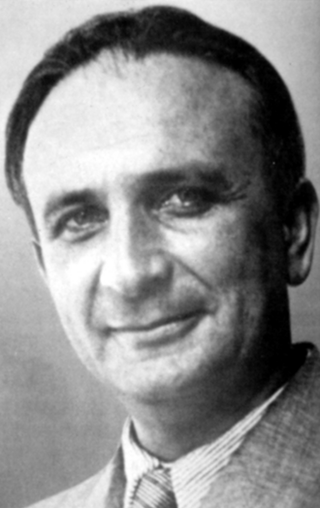
Philipp Schwartz was a Hungarian-born neuropathologist. In the interwar period he was a professor in Frankfurt, Germany. He became a major figure in the community of German émigré scientists after 1933 and founded the Emergency Association of German Scientists Abroad.
Prior to joining the Allied Powers late in the war, Turkey was officially neutral in World War II. Despite its neutrality, Turkey maintained strong diplomatic relations with Nazi Germany during the period of the Holocaust. During the war, Turkey denaturalized 3,000 to 5,000 Jews living abroad; between 2,200 and 2,500 Turkish Jews were deported to extermination camps such as Auschwitz and Sobibor; and several hundred interned in Nazi concentration camps. When Nazi Germany encouraged neutral countries to repatriate their Jewish citizens, Turkish diplomats received instructions to avoid repatriating Jews even if they could prove their Turkish nationality. Turkey was also the only neutral country to implement anti-Jewish laws during the war. Between 1940 and 1944, around 13,000 Jews passed through Turkey from Europe to Mandatory Palestine. According to the research of historian Rıfat Bali, more Turkish Jews suffered as a result of discriminatory policies during the war than were saved by Turkey. Since the war, Turkey and parts of the Turkish Jewish community have promoted exaggerated claims of rescuing Jews, using this myth to promote Armenian genocide denial.
Türkische Post was a German language daily newspaper published in Istanbul, Turkey. The daily was in circulation between 1926 and 1944 with some interruptions.